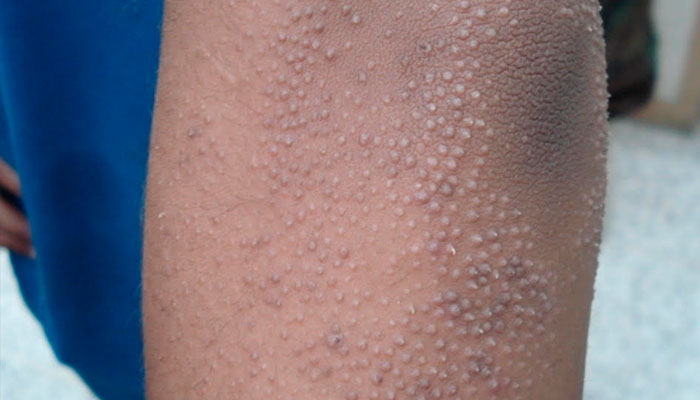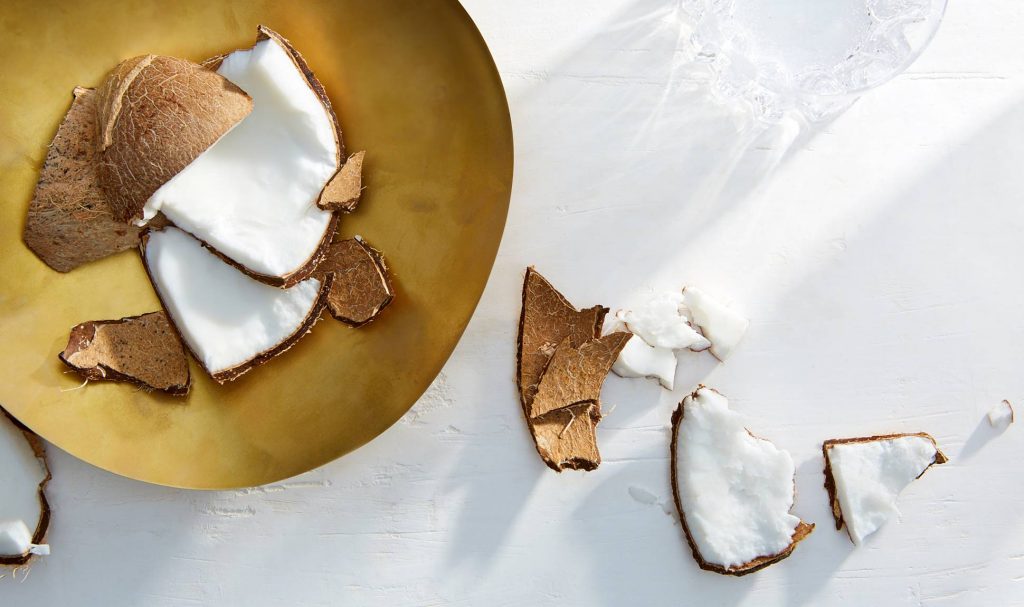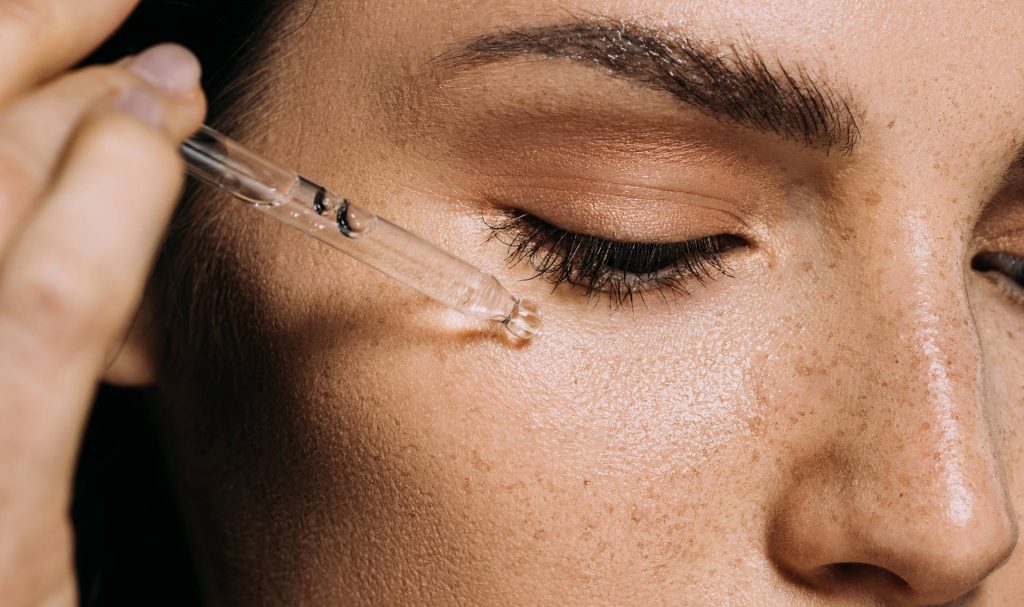Summer is just around the corner, which means it’ll soon be time to break free from the constraints of long sleeves and pants. But for some people, it also means dealing with bumpy “chicken skin.”
Keratosis pilaris is the name for this annoying skincare issue, which is classified by tiny, hard red bumps, dryness and occasional itchiness. And the good news is that it’s completely harmless.
Keratosis pilaris is a common skin irritation that forms when there’s a buildup of a protein called keratin, which typically protects the skin from infection. Excess keratin can plug up the opening of the hair follicle and cause rough patches to form.
The condition can develop on a person’s arms, legs and even buttocks. According to the Mayo Clinic, treatment by a doctor isn’t necessary for any medical reason but people may find it helpful to see a dermatologist for a diagnosis, or if their KP becomes truly bothersome.
“It is not an infection, it is not caused by bacteria or fungus,” explained Janellen Smith, a dermatologist at UC Irvine Health. “It is very unlikely that any doctor can get rid of it, but we can make it better. It tends to get better on its own as people get older.”
While it’s unknown how many people total suffer from the condition, Smith says it is typically genetic and seems to pop up more in women than men. It tends to get worse during pregnancy and puberty.
Even though there’s no real way to prevent or stop keratosis pilaris, there are ways to help manage it. Here are a few suggestions from Smith:
Wash your skin gently.
”Avoid scrubbing as this tends to make it worse,” Smith said. In other words, ditch the harsh washcloth in the shower.
Avoid fragrant soaps.
Sorry, Lush lovers. Opt for a simple cleansing bar. Soaps with strong fragrances tend to exacerbate the symptoms, Smith explained.
Change your towel-off method.
”When you come out of the shower pat yourself dry, don’t rub or scrub,” Smith advised. And try to avoid tight clothing, if you can.
Try a specialty lotion.
Smith recommends looking for a lotion that has lactic acid in it, such as AmLactin, which can be purchased at drug stores.
Talk to your doctor about skin creams.
Retinoid creams or other topical products with steroids in them may help reduce inflammation, Smith explained.




